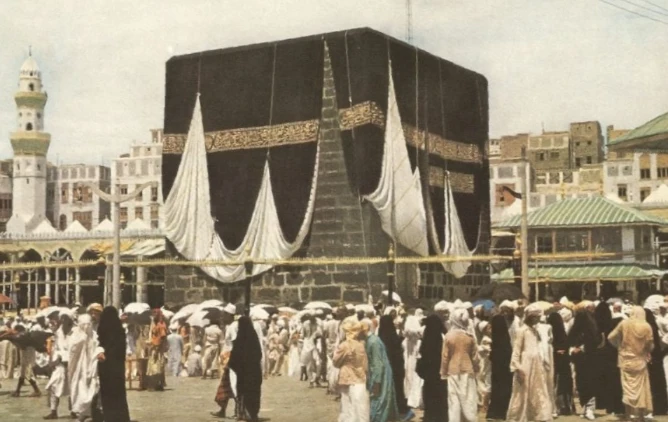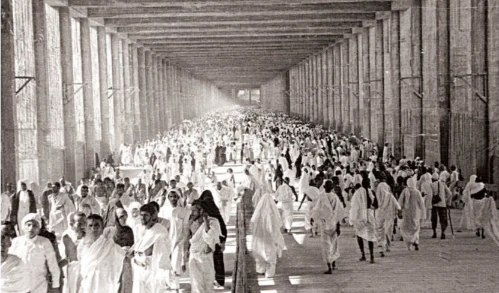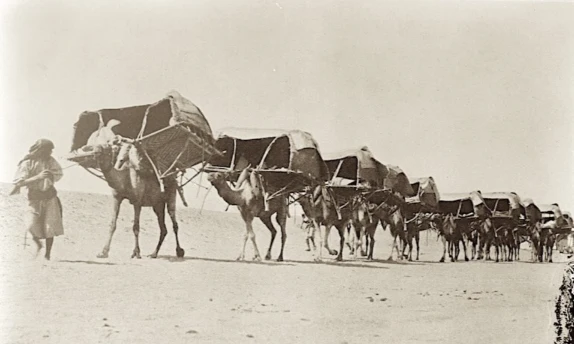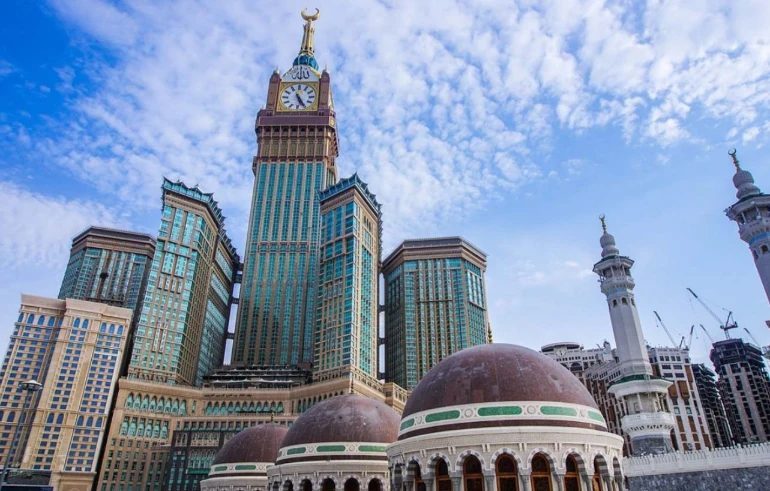Hajj, the journey to Mecca, is one of the five obligations that a Muslim person must fulfill if they have the ability both physically and financially. Hajj in history, with millions of Muslims every year embarking on a sacred trip. For Muslims, Hajj is highly important because it signifies the unity of the ummah showing that all Muslims are one community under God’s will (SWṬ).
History of Hajj

A Spiritual Journey Through Time Hajj, the annual pilgrimage to Mecca has become a pivotal cornerstone in Islam. Hence, it is a deeply rooted historical and symbolic tradition that dates back to Prophet Ibrahim (Abraham) and his family.
Origins and Early History of Hajj: Prophet Ibrahim AS, his wife Hajar RA, and his son Ishmael AS named Ismail are the stories used to trace back Hajj’s beginnings. Ibrahim is recorded in Islamic doctrine as having been instructed by Allah to forsake his spouse Hajar plus their Isma’il AS in a deserted area around Mecca. Hajar RA scurried up and down Safa and Marwah looking for water but she only found a miraculous well that nourished her and her son. This ritual was incorporated into Hajj which requires pilgrims to walk between these two hills emulating Hajar’s act.
Before the advent of Islam, Mecca was important for religious reasons since it was the center of worship for many tribes and religious groups in the Arabian peninsula with the black cube serving as a place where people came together to offer their sacrifices regardless of their religion. Prophet Ibrahim AS reconstructed this cubicle under divine instructions, establishing it as a place for worshipping one God and associating it with the Hajj pilgrimage.
Era of Prophet Muhammad PBUH

The Prophet Muhammad PBUH established the modern form of Hajj in the 7th century CE. He cleaned the Kaaba from its idols after conquering Mecca in 630 CE and restored it as a place of worship for one god. Also, he formalized the rituals of Hajj based on those that were established by Ibrahim as.
During his last pilgrimage in 632 C.E. known as the Farewell Pilgrimage, Muhammad gave his great sermon at the Plain of Arafat which outlined the principles of equality, justice, and compassion that are central to Islam. These principles remain relevant today, as all Muslims pray five times a day facing Mecca/Medina, even if separated by thousands of miles. This practice adds significance to the Qur’an’s reflection of Allah’s last words to the Prophet, “Those who know what we do are not like those who know not.”
Medieval Period

In the Medieval period, the Hajj pilgrimage became more extensive and important, thus attracting pilgrims from all over the Muslim world. Damascus, Cairo, and Baghdad among other cities increased their importance as centers for pilgrim caravans; their rulers also ensured the provision of logistics to ensure safety throughout the trip.
Ottoman Empire
The Ottoman Empire has had a major part in putting together and protecting the pilgrimage to Hajj. Moreover, The Ottoman sultans appointed Amir al-Hajj to run the movement for Hajj. Which ensures that those heading to Mecca were safe and in good health. The building of the Hejaz Railway in the early 20th century, made it much easier for those going for the pilgrimage as people took less time before they reached their destinations coming from Damascus to Mecca.
Modern Developments and Challenges

Travel and its related infrastructure have undergone radical change in the past century. Moreover, rendering the Hajj Pilgrimage unrecognizable from its former state. This has largely been a result of the availability of air transport, which has since replaced the obsolete sea transport. It makes Mecca more accessible today than ever before.
On the other hand, Hajj in history was laden with hardships. Congestion, logistics, and incidents have challenged those managing pilgrim movements and Saudi Arabia. Authorities have taken several steps to prevent overcrowding and ensure safety, such as constructing flyovers and expanding facilities for pilgrims
Rewards of Hajj
Individual Rewards of Hajj
1. Forgiveness and Spiritual Proximity: The peak of Hajj is Arafat day when faithful followers ask for mercy and present passionate appeals until nightfall. It is during such a time that Allah Himself forgives several believers allowing them to start over again spiritually. The statement in Hadith elaborates extensively on what this entails since the Universal Being highly regards it.
2. Closeness to Allah Almighty: When individuals begin on the journey to Hajj and carry out its rituals consistently, they come closer to Allah. This act forms a deeper spiritual connection and atones for earlier wrongdoings, paving the way for a brighter future. For those who genuinely desire union with God, they may take consolation from knowing. That he listens when spoken with in addition to compensating based on levels/ degrees on which one has kept faith.
3. Paradise as Ultimate Reward: Every Muslim dreams of going to heaven and this is what he hopes to get through Hajj pilgrimage. For Muslims, this reward is something that they work for to be godly and decent people as commanded by their religion. The ultimate goal of every Muslim is to achieve paradise and this is what they aim at during Hajj. A divine reward is something that is emphasized in Hadiths. Therefore making sure that Muslims live well-mannered lives to earn it.
4. Reduction of Poverty and Acceptance of Supplication: Hajj, in addition to spiritual benefits, also carries with it worldly benefits such as flooding people out of poverty and making sincere supplications to God to bring relief. Therefore, the Hadith of Abdullah bin Mas’ud imparts these practical advantages of Hajj. It underlines the point that serving God is a source of strength and power.
5. Women’s Hajj as a Form of Jihad: The soldiers’ reward is equivalent to sincere women on pilgrimage. Hajj, in the perspective of Allah, entails a soldier’s reward. Sincere women’s pilgrimage to the source is Jihad.
Read Also
What Is Hajj? The Importance Of Hajj In Islam-Etuitionsgateway
Collective Benefits of Hajj
1. Ethical Evolution and Cultural Exchange: Hajj promotes moral development and cultural interchange disregarding people’s distinctions and financial insecurities. By the very act of putting on ihram, it brings together spiritual seekers in who see themselves as belonging to one another promoting an experience of parity and fraternity that they all share with like-minded individuals during this period. People return from Hajj feeling better and becoming kinder after performing acts to atone for their deeds and devoting themselves to their souls.
2. Symbol of Unity and Integrity: Hajj signifies unity and integrity among the worldwide Muslim community fundamentally. Pilgrims flock to Mecca irrespective of their race, color, or socioeconomic status to worship their One Creator. Thereby stressing the all-encompassing nature of Islam as a faith. What drives this joint effort is the desire by Muslims to strengthen their bonds based on values. Also, they have in common as well as a common commitment to brotherhood among all believers, nurturing peace and unity.
3. Tranquility Through Unity: An atmosphere of tranquility and peace is created by Hajj through the congregation of Muslims from all over the world regardless of where they are or their cultural affiliation. In Mecca’s holy places, those going on pilgrimage can get comfort from joint prayers with others who have gone through the same kind of experience before and then experience a type of happiness free from all fleeting worries.
Final Words
Essentially, the history of Hajj reveals a profound spiritual and communal journey. It offers significant rewards to individuals and the community worldwide, resonating deeply with believers’ hearts and souls.

